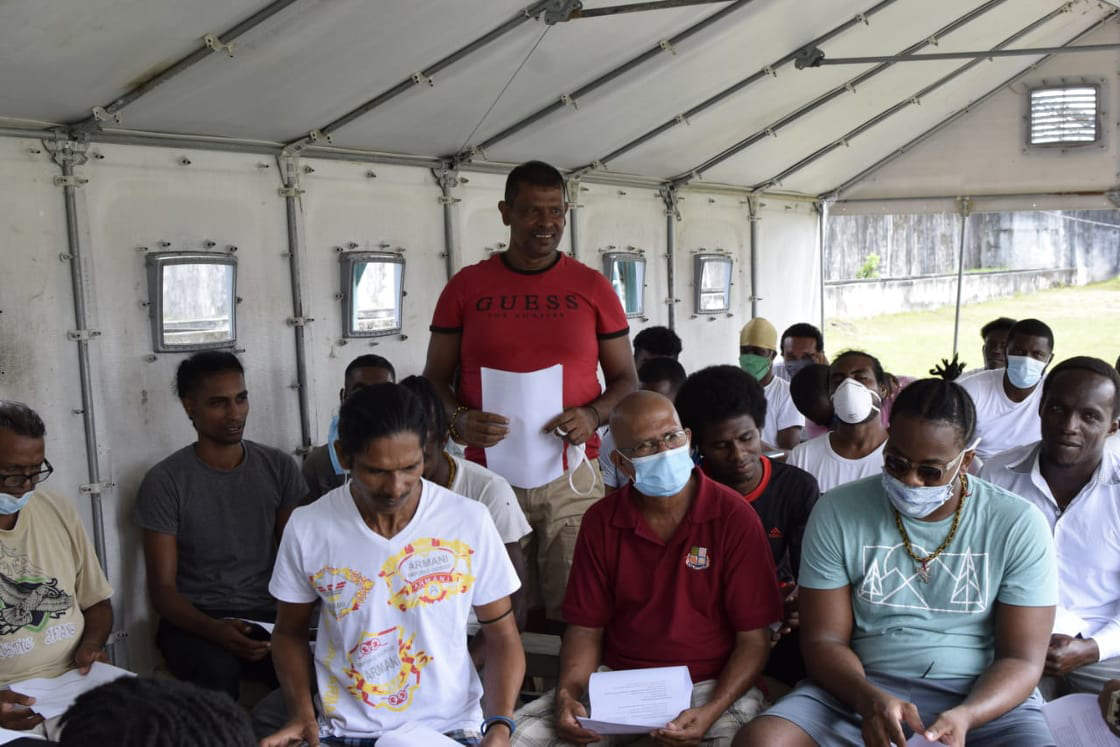Aimed at reducing recidivism and supporting reintegration of prisoners into society, the Government has set aside a sum of $88.9 million this year to train prisoners through the “Fresh Start” Initiative.
The Guyana Prison Service (GPS) in a press release issued recently said that a number of rehabilitation programmes have since been rolled out.
It said some 1400 inmates are expected to benefit from the programmes which will be offered at all the prison locations throughout the country.
“The Guyana Prison Service is tasked with the responsibility of preparing inmates for re-integration into society,” the release said.
“For this reason, Government has adopted a policy of prisoners’ reform, which is done through the provision of training opportunities, allowing inmates to acquire basic income generating skills and improve their literacy levels while serving their sentences,” it added.
Training has already commenced in the areas of carpentry and joinery, anger management, blocking making, tailoring, digital skills, cosmetology and crops husbandry, the release added.
According to the release, the first batch of 30 inmates from the Lusignan prison have commenced a 12-week anger management course which is focused on personal development. The sessions, it said is being organized and facilitated by Empower Guyana Consultancy (EGC).
The release explained that Founder and Chief Executive Officer (CEO) of the organization, Amar Panday noted that the goal is to expose the inmates to ideas and concepts relating to personal development so that they can return to their communities as “reformed, rehabilitated” citizens.
It added that Officer-in-Charge of the Prisoners’ Welfare and Corrections, Marielle Bristol said that the objective of the course is to have a positive change in prisoner behaviour with the hope that it filters into society when they are reintegrated.




